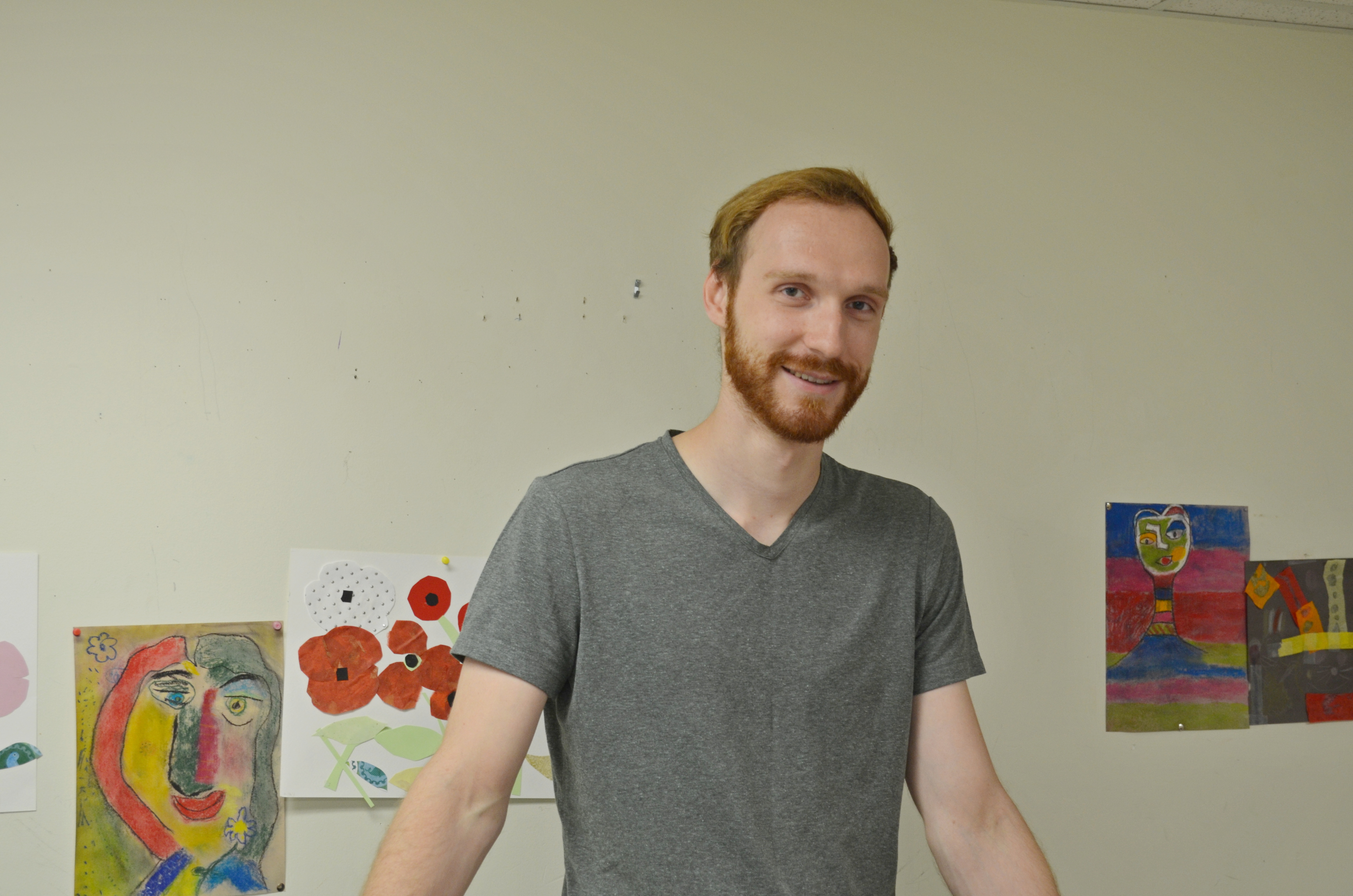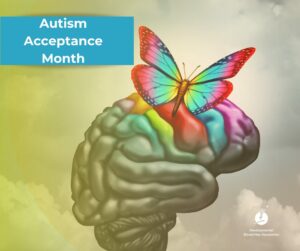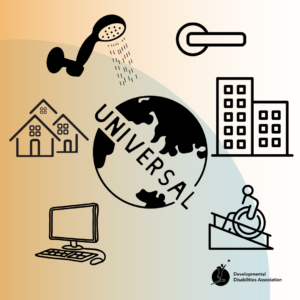With an academic background in psychology and the social skills of a friendly Starbucks barista, Sam, who is currently pursuing further education in occupational therapy, is a perfect match as a Community Support Worker at our Day Programs.
He has been with the DDA since April 2017, balancing full-time work and his studies year round. Sam had previously worked at a DDA group home as a care worker, until a coworker recommended joining the Day Programs, where he continues to work today.
What would you say motivates you on a day-to-day basis?
I’m a very socially-driven person. I’ve always been motivated by the connections I’m able to make with people, and on top of that, I’ve always been driven by seeing progress towards goals. Whether they’re little things like learning how to write their name properly, or bigger things, like learning how to make change and how to take transit.
Being in an environment where there are so many different types of goals running concurrently over the course of a day, a week, a month, is very rewarding.
Does that tie-in with the personal goals you want to accomplish?
Yeah. Gaining experience in this field is a big one, but just learning how to interact with people, regardless of what might be going on, is one of the biggest things I’ve learned being in this program specifically. There are tons of differences between people who share the same diagnosis, as well as between people who don’t. Learning how to switch from one interaction to the next is huge for anyone trying to go into any level of mental health work. You need to be able to be a chameleon.
What is it like working as part of the DDA team?
I work in a team of about nine-ish that I see on a weekly basis. There’s a really strong group of personalities as far as staff here. If you’re having a rough day, people realize this and cut you some slack; and vice versa. Everyone here is very up-tempo and energetic, and is able to be a good team member when they’re individually having a bad day. It’s really strong, and I really like the group that we have here.
Did you have any preconceptions about this job? Did your psychology background influence it in any way?
There were preconceptions about how hectic it would be. I was expecting a day program situation to be much more laid back, but it’s definitely a higher tempo than I was expecting for this program. The biggest surprise was how social and how motivated everyone was to make connections.
From my time working in the group homes, there weren’t many surprises as to how capable a lot of the clients are. I think if you go out to the general public and ask what they think about the term “developmentally disabled”, their mind will often jump to the image of somebody who is very visibly and significantly delayed.
I think we have a handful of clients who you wouldn’t realize were attending these programs. I think that if you didn’t have experience in either work or education with our clientele, you wouldn’t necessarily realize that our clients are as capable as they are, and be attending our programs.
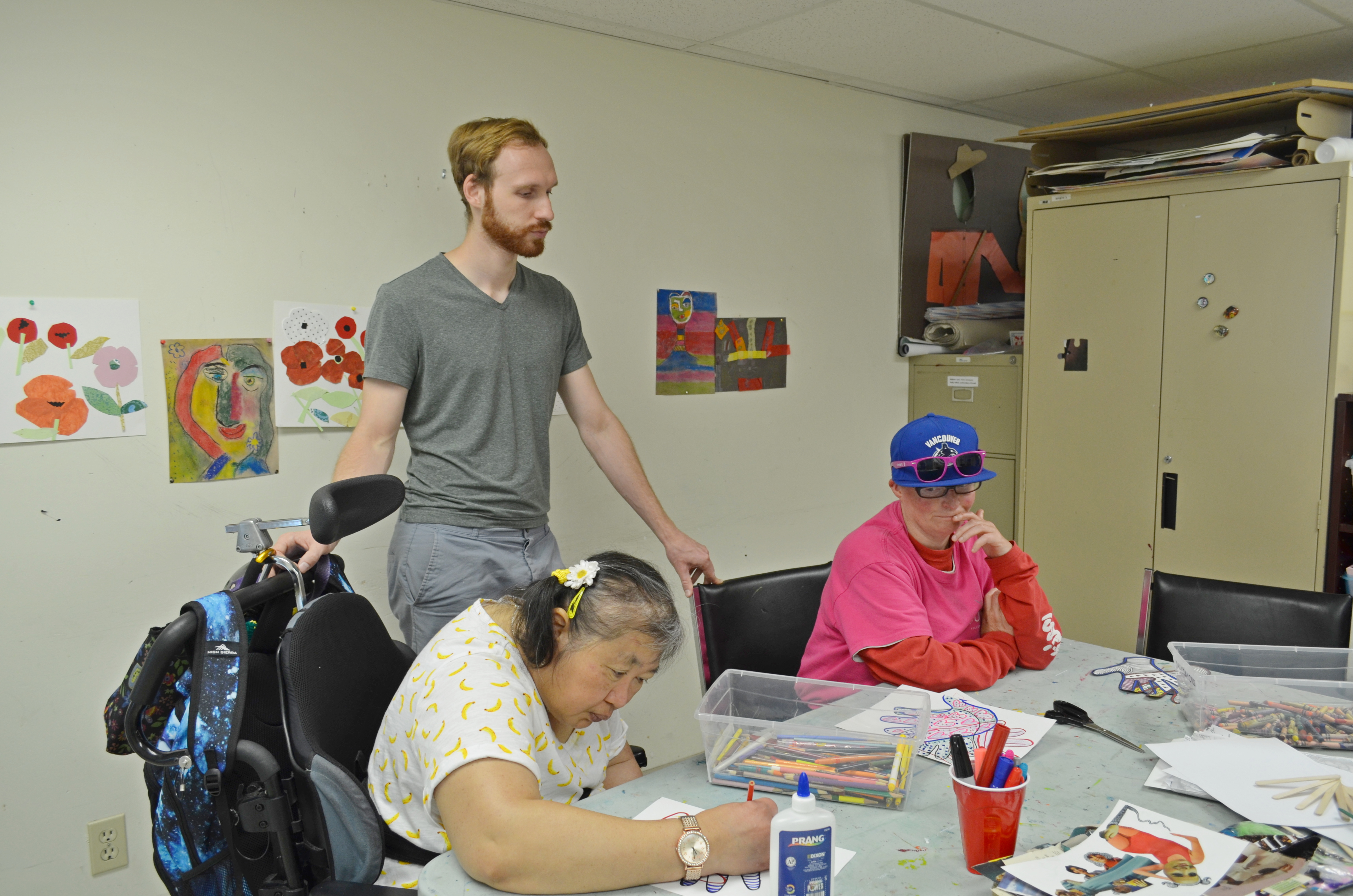
What are some ways that you think are effective in getting rid of these preconceptions?
I think ways as simple as saying “hello” when you see a group of clients in public, and making an effort not to focus on how people might appear. One of the things you study in psychology is that the brain is the same inside of all of us. Some are made a little differently, but at the end of the day, they all do the same thing.
You can look at somebody who is missing an arm, and you’re not going to think that they’ll act any differently than someone who isn’t missing an arm, right? It’s the same with the brain. You might see that someone is mentally-abled differently than you are, but that shouldn’t indicate to you that you know how they’re going to act.
I think that’s the biggest thing that studying psychology did to prepare me for this role: to break down those barriers that make you feel like you’re different from these people.
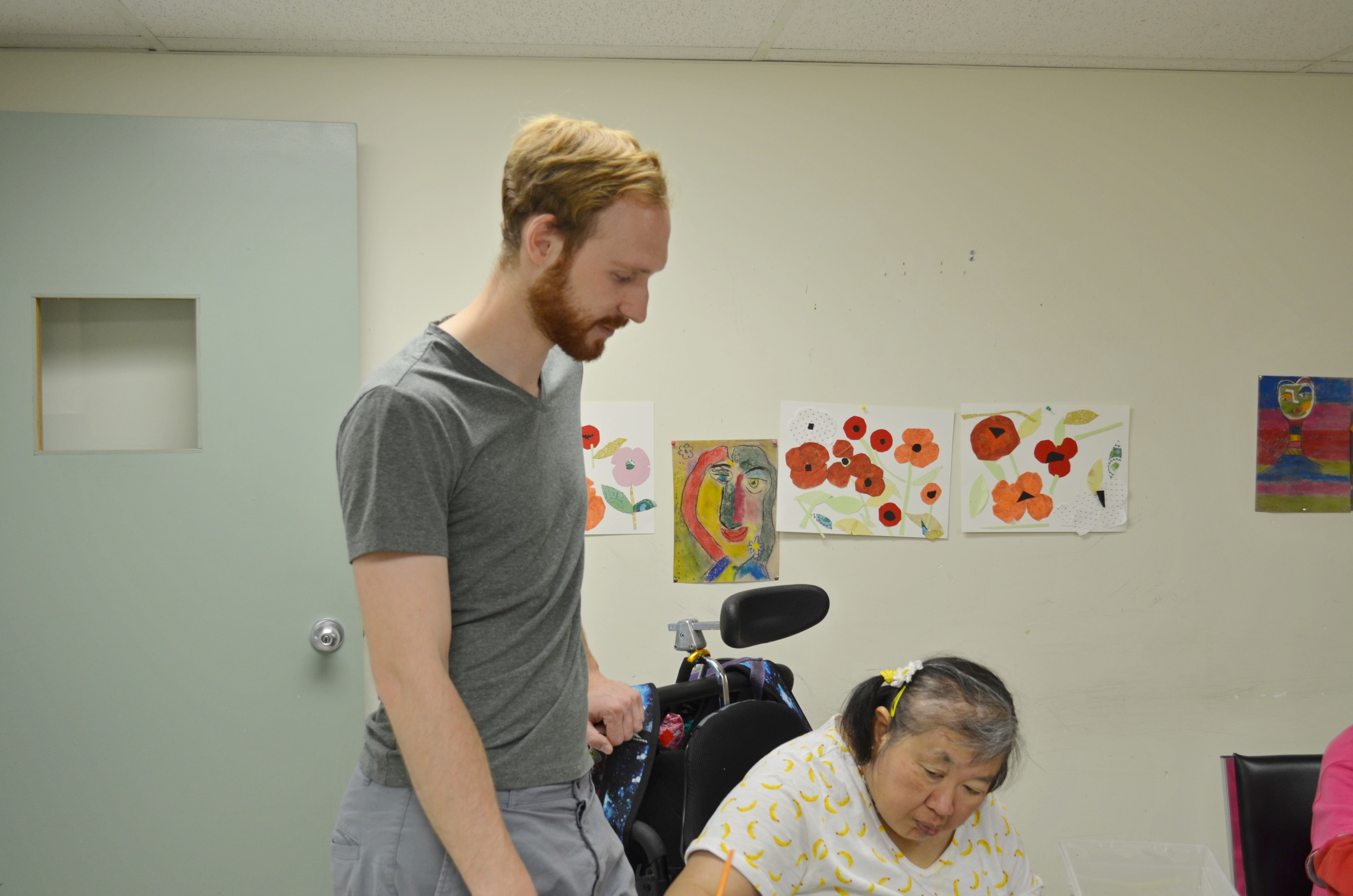
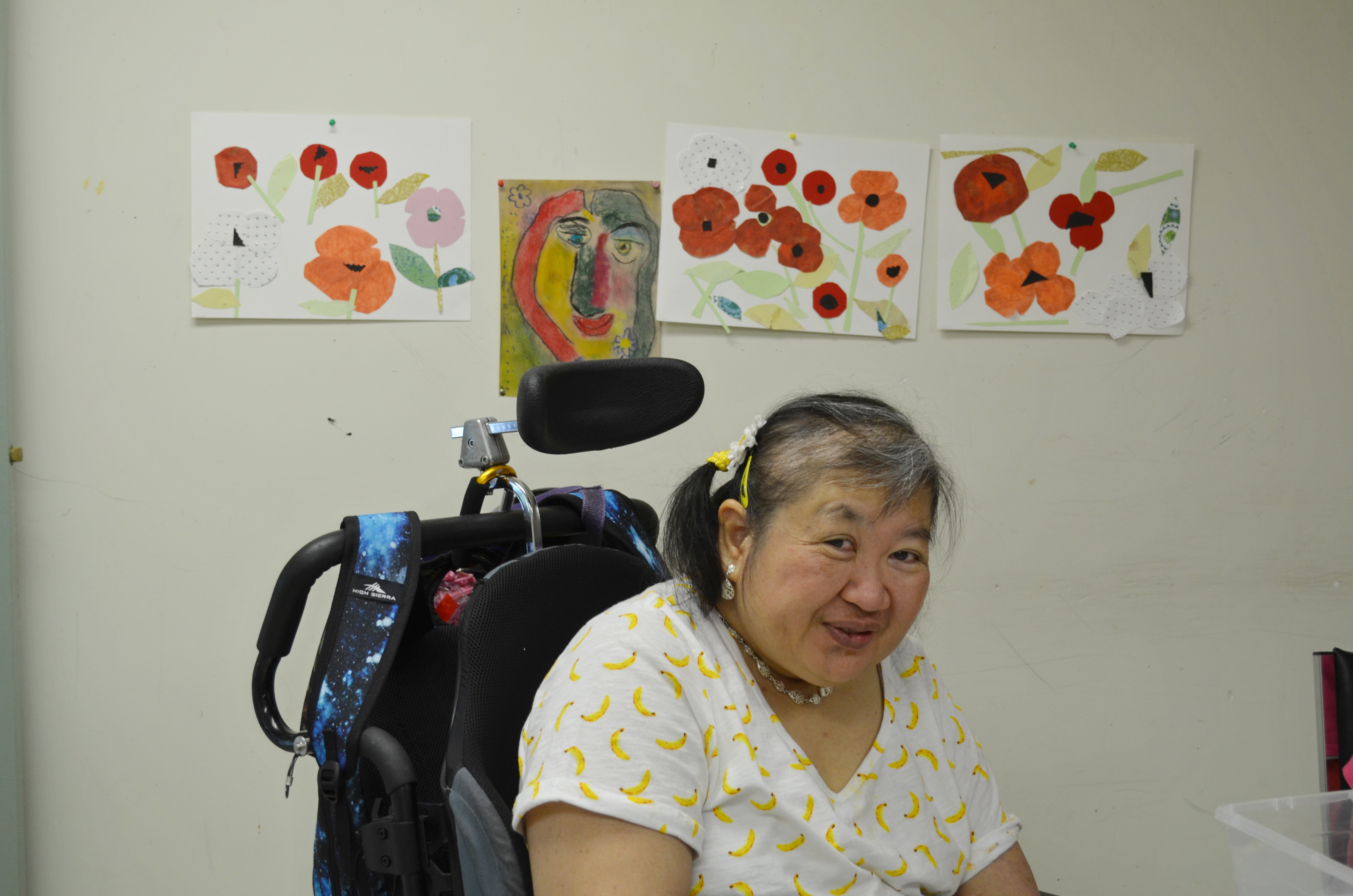
If you had to describe working at DDA in a few words, what would they be?
Energetic and rewarding.
What would you say is the most interesting experience you’ve had here?
I think one of them is the Walk-n-Roll-a-thon. Many of our programs come down to Trout Lake, and you get to see all of your participants in a sports day-type group, but then you also get to see all of the interactions between the people who haven’t seen each other in a while. Seeing the way that people are able to open up and come out of their shell, and seeing the way people change when they’re in a much bigger group environment than they’re used to was just fascinating to me. Personalities changing and light up: I think that was one of the most interesting single events I’ve seen.
Has working here at DDA changed your career plans at all? Either reinforcing it or slightly changing the path you wanted to take?
Definitely. It actually changed it quite a bit: I had been planning on going into grief counseling in university, but working here and being exposed to this range of professionals and hearing secondhand from clients and staff about the scope of jobs out there, gives you more of an idea of what’s out there.
Working at a place where you get to be yourself to such a strong degree helps you refine what it is that drives you. I didn’t realize I was as goal-driven as I am, until I started working here and getting to work with people aiming to reach their goals.
That’s what has changed my career path to occupational therapy, where you’re working with more concrete, physical goals as opposed to just talk therapy.
Do you have any advice for someone starting out at DDA? Either in this position, or just in general?
Drop any preconceptions. Working in any person-centered environment, your job is based around personalities. So you can’t go into any job in this field expecting anything because everything is going to depend on the group of people.
Don’t be shy. The fact that you’re working in a social environment, you have to get to know people. Your job is going to suck if you’re not able to make those connections. You have to be willing to go with it and be yourself. I think that’s the great thing about here: all the staff and the clients realize that you have to be yourself. No one is going to judge you if your singing voice is bad, or if you’re asking questions. People just respect you if you’re being genuine.
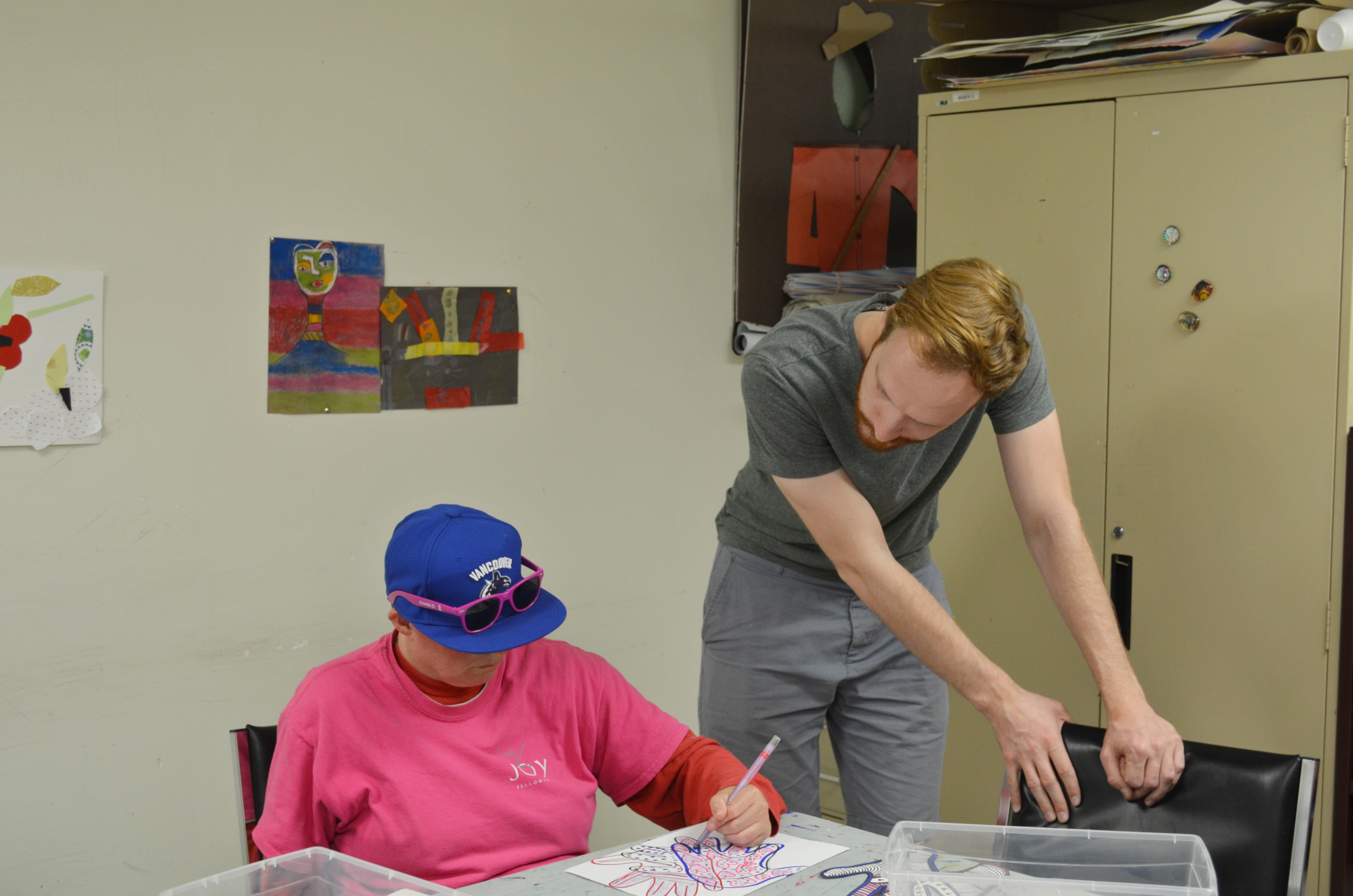
It’s refreshing to hear that a job not only encourages, but necessitates authenticity and being yourself to thrive. While Sam’s credentials as a psychology student boost his ability to understand the clients he works with, he also makes it clear that empathy and energy are the real keyholders to success in his work.
DDA is currently hiring Community Support Workers! To be a part of our supportive, action-packed team, join us today.
